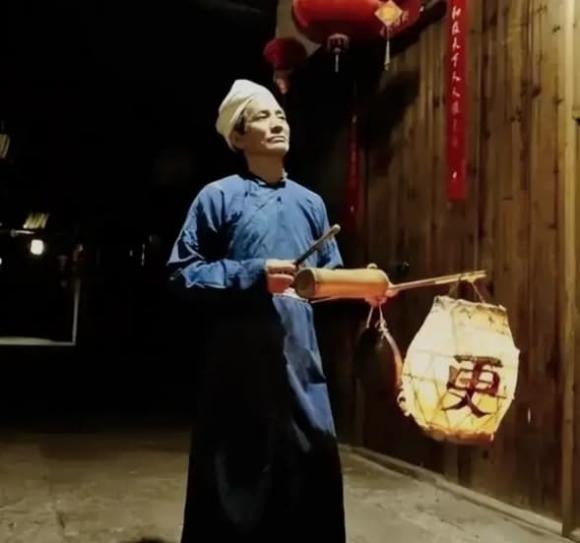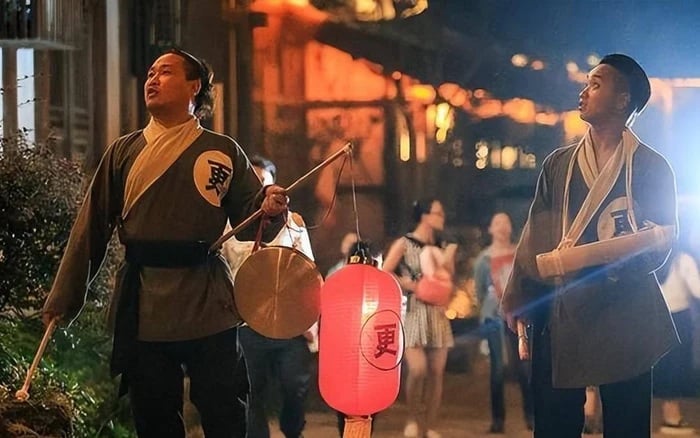In ancient China, the profession of “gong hitters” became an integral part of urban life. The absence of modern alarm systems and the need for fire prevention and maintaining community security gave rise to this unique occupation.

As night falls and people drift into a deep sleep, their guard is at its lowest.
The risk of fire, one of the greatest dangers in ancient communities, is heightened. The gong hitters’ task is to patrol and remind people to be vigilant about fire sources, preventing accidents caused by negligence or forgetfulness.
While the sound of the gong in the quiet night may interrupt the sleep of many, it is a necessary and effective measure to maintain community alertness. For them, the safety of an entire city outweighs the temporary rest of individuals.
The origin of this profession can be traced back to the Qin Dynasty, but it was during the Han Dynasty that it gained widespread popularity. Typically, young and robust men worked in pairs for strength and mutual supervision. They walked the streets together, one carrying a stick and the other hitting the gong, creating a distinctive sound that resonated throughout the area.

They not only marked the time but also maintained order and security in their community.
Through their checks and surveillance, they helped deter criminal activities and ensured the community’s safety. Their presence on the night streets was a testament to vigilance and a symbol of peace and harmony within the community.
With technological advancements and the introduction of modern alarm systems, the profession of gong hitters became obsolete. However, their role and significance in history are remembered as an essential part of urban culture and history. They were not just guardians of security but also living witnesses to societal changes and developments over the centuries.
The profession of gong hitters, over millennia, has become an inseparable part of the cultural heritage of many nations. They are not merely timekeepers or safety reminders but also custodians and propagators of traditional values, bridging the past and the present and enriching the cultural identity of each nation.
The Daytime Maid Works Tirelessly, But Why Does She Fear Her Master’s Slumber at Night?
In ancient times, women of the lower strata of society, especially palace maids, endured unimaginable hardships. Their lives were fraught with challenges and struggles that most of us today cannot even fathom. These women faced a constant battle for survival in a world that often treated them as mere pawns to be sacrificed at the altar of power and prestige.




































